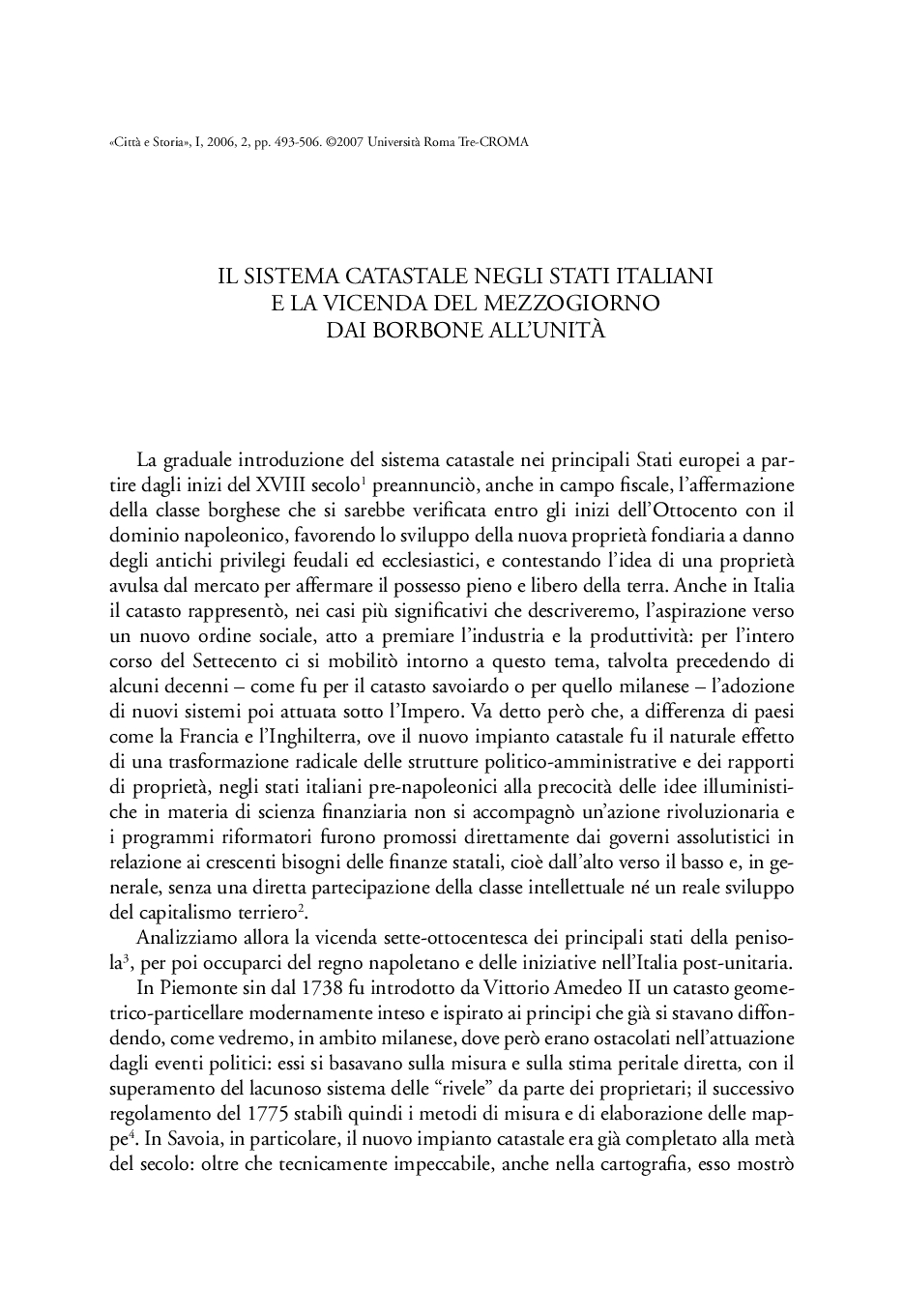Indice dei fascicoli
CITTÀ & STORIA » 2006/2 » La città allo specchio
ISSN 1828-6364
Buccaro Alfredo
Il sistema catastale negli Stati italiani e la vicenda del Mezzogiorno dai Borbone all’Unità
pp.493-506, DOI 10.17426/59840
Articoli
Abstract: After a presentation of the cadastral systems in use in the principal states of the peninsula from the early eighteenth century, the present study focuses on the Reign of Naples. The capital in particular, from the beginning of the Modern Age to the arrival of Joseph Napoleon, had been privileged from a fiscal standpoint; with the arrival of the French direct taxation was reformed and a temporary cadastre created in each town, including the capital, to be followed by property surveying. While the latter was never carried out, beginning in 1814 the stati delle sezioni (borough registers) were compiled. With the Unification property taxation throughout the Reign of Italy became uniform and surveying of the main urban centers was carried out in those provinces lacking geometric cadastres. The institution of a new, nationally uniform Nuovo Catasto Terreni based on geometric parcels was contained in the March 1, 1886 law on property regularization. For many cities of southern Italy cadastral mapping constituted the very first instance of complete representation of their territory. It thus became a precious means for drawing perimeters of historical towns and investigating urban history.

Referenze
- download: n.d.
- Url: http://archivio.centroricercheroma.it/?contenuto=indice-dei-fascicoli&idarticolo=730
- DOI: 10.17426/59840
- citazione: A. Buccaro, Il sistema catastale negli Stati italiani e la vicenda del Mezzogiorno dai Borbone all’Unità, "Città & Storia", I/2, pp.493-506, DOI: 10.17426/59840

